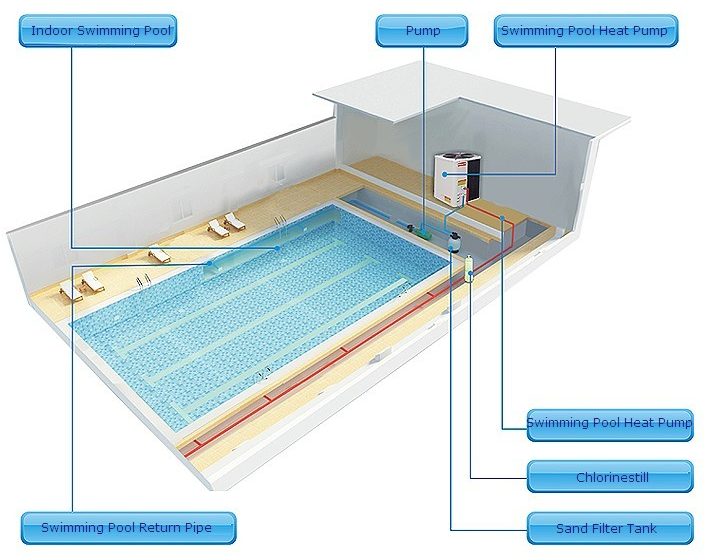Factors Affecting The Performance Of A Heat Pump For A Swimming Pool

A heat pump has an efficiency of more than 500% compared to any other water heating system of any type. It is essential to say that for every kilowatt it consumes, it delivers 7.6 free and has power 32 times greater than any boiler, which makes them unsurpassed in efficiency, performance, and economy.
It is essential to say that the heat exchanger’s construction is made of titanium; this is a material used in the aeronautical industry and the manufacture of weapons and resists all corrosion types mini split system.
These machines can work with any type and quality of water (soft or hard), it is very resistant to the action of water, even the sea, excess chemicals, excess chlorine, excess acids, and essential, so it does not let anything happens to the exchanger, the only requirement for its excellent performance is that the water is filtered before being heated, so get your homes hvac system. Here are factors that affect it:
Pool Size: The heat pump used and the hours of operation required will depend on both the surface area and the pool’s water volume. Pools dug into the ground lose 80% of their heat to the surface, and pools built above ground would also experience heat loss through the walls. The more volume of the pool water, the more work the machine will be subjected to.
Ambient Temperature: This factor greatly affects performance; the warmer the air in the environment, the less time the machine will need to run to raise the desired value.
Desired Water Temperature: This is the temperature at which we have programmed the heat pump. The greater the difference between the air and the water’s temperature, the greater the heat losses and the longer it will take for the pool to heat up.
Cover: Pool covers will reduce heat losses due to evaporation and convection by 50% and reduce the amount of heat required at the same rate.
Wind: When a cover is not used, the wind’s action on the surface of the water acts to evaporate and cool the water.
Exposure To The Sun: On the contrary, this factor will increase the temperature of the water during the day.
Fountains And Waterfalls: The water movement caused by a fountain or waterfall acts like the wind blowing on the surface of the pool water, increasing heat losses on a large scale.